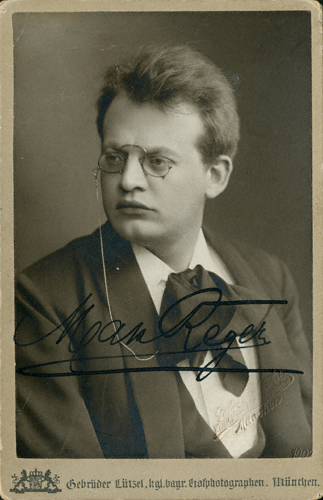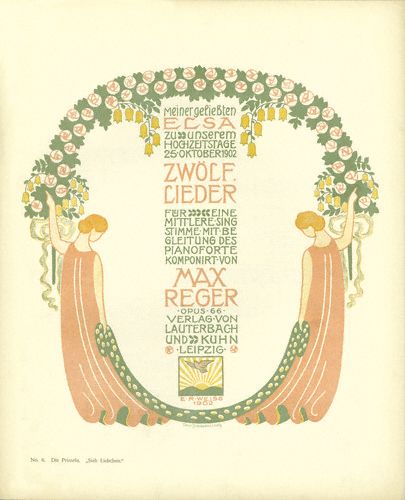1. Munich

The Berlin premiere of Reger’s bold Symphonic Fantasia and Fugue, Op. 57 through Karl Straube was received in part with horror. Some reviewers even relegated the work to the realm of the pathological, such as Rudolf Louis, who, reviewing a performance in Basle in 1903, wrote that in Reger's case there seemed “to be something like a psychological perversity of tone and sound, as a result of which he indulges in cacophony, in the musically ugly, just as others indulge in purely sensual melodiousness” (Rezension). The premiere of the first Clarinet Sonata from Opus 49, on the other hand, brings Reger the highest praise from the critics because of its impressionistic sensuality of sound. After a Symphony in D minor (WoO I/8) remains a fragment, chamber music becomes the essential field of composition in the ensuing years.

Through publishing and concert fees as well as private lessons, Reger is now able to set up his own household. He once again proposes to Elsa von Bercken, who attends one of Reger's recitals in Munich and who reconsiders her earlier rejection of his wooing. On 25 October (Elsa’s 32th birthday) the civil marriage takes place. Am 25. Oktober findet die zunächst standesamtliche Heirat statt. Marriage to a divorced Protestant resulted in Reger's excommunication and is sharply rejected by his family. On 7 December, the couple is married in the village church of Boll near Göppingen (Wurttemberg) by a Protestant pastor.
Since the Aibl publishing house, impaired by the owner's illness, rejects two works – the Burlesken for piano duet, Op. 58 and the Piano Quintet in C minor, Op. 64 – Reger searches for a new main publisher. However, the pre-purchase agreement concluded on 1 January 1903 with the freshly founded but also financially weak Leipzig firm of Lauterbach & Kuhn proves to be extremely restrictive for the prolific composer in the long run.
Postal items from this year whose sender or addressee is Max Reger.
Images from the Max Reger Foto Gallery that originate from this year and have a direct reference to Max Reger.
Reference
Max Reger Biography – 1902, in: Max-Reger-Portal, www.maxreger.info/biography/1902, Max Reger Biography Data, V. 3.2.0, last check: 9th February 2026.